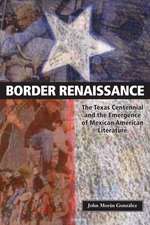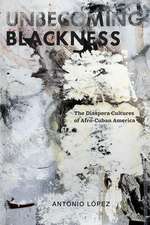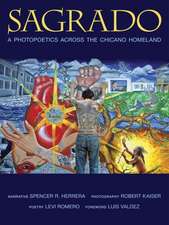Intellectual Property, Traditional Knowledge and Cultural Property Protection: Cultural Signifiers in the Caribbean and the Americas: Routledge Research in Intellectual Property
Autor Sharon Le Gallen Limba Engleză Paperback – 3 mar 2016
This book examines how developments to protect collectively held knowledge transpose to circumstances which may not meet the usually understood criteria of what is considered to be an indigenous or traditional group. This includes communally derived cultural products which have emerged out of communities and subsequently formed a part of the national or popular culture. The book considers the steel pan of Trinidad and Tobago, punta rock music from Belize, Brazilian capoeira, and the cajón of Peru as key cases studies of this.
By exploring the impact of past and recent international developments to protect traditional knowledge, Sharon Le Gall highlights a category of cultural signifiers which lies outside the scope of intellectual property protection, as well as the protection proposed for traditional knowledge and advocated for intangible cultural property. The book proposes a reinterpretation of Joseph Raz’s interest theory of group rights in order to accommodate the rights advocated for collectively derived cultural signifiers on the basis of their value as symbols of identity. In doing so, Le Gall offers an original account of how those signifiers, which may not be described as exclusively ‘traditional’ or ‘indigenous’ and held in ways which are not ‘traditional’ or ‘customary’, may be accommodated in emerging traditional knowledge laws.
| Toate formatele și edițiile | Preț | Express |
|---|---|---|
| Paperback (1) | 443.65 lei 6-8 săpt. | |
| Taylor & Francis – 3 mar 2016 | 443.65 lei 6-8 săpt. | |
| Hardback (1) | 1057.75 lei 6-8 săpt. | |
| Taylor & Francis – 11 dec 2013 | 1057.75 lei 6-8 săpt. |
Din seria Routledge Research in Intellectual Property
-
 Preț: 295.69 lei
Preț: 295.69 lei -
 Preț: 311.41 lei
Preț: 311.41 lei -
 Preț: 325.72 lei
Preț: 325.72 lei -
 Preț: 340.84 lei
Preț: 340.84 lei -
 Preț: 311.76 lei
Preț: 311.76 lei - 29%
 Preț: 652.04 lei
Preț: 652.04 lei - 18%
 Preț: 1109.18 lei
Preț: 1109.18 lei -
 Preț: 350.72 lei
Preț: 350.72 lei -
 Preț: 469.34 lei
Preț: 469.34 lei - 22%
 Preț: 136.01 lei
Preț: 136.01 lei - 18%
 Preț: 1059.45 lei
Preț: 1059.45 lei - 18%
 Preț: 1109.18 lei
Preț: 1109.18 lei - 18%
 Preț: 1002.36 lei
Preț: 1002.36 lei -
 Preț: 415.09 lei
Preț: 415.09 lei -
 Preț: 388.90 lei
Preț: 388.90 lei - 18%
 Preț: 1003.12 lei
Preț: 1003.12 lei -
 Preț: 449.41 lei
Preț: 449.41 lei -
 Preț: 317.67 lei
Preț: 317.67 lei - 20%
 Preț: 931.42 lei
Preț: 931.42 lei -
 Preț: 365.16 lei
Preț: 365.16 lei -
 Preț: 489.26 lei
Preț: 489.26 lei -
 Preț: 374.54 lei
Preț: 374.54 lei -
 Preț: 280.71 lei
Preț: 280.71 lei - 25%
 Preț: 654.07 lei
Preț: 654.07 lei -
 Preț: 492.74 lei
Preț: 492.74 lei - 26%
 Preț: 763.61 lei
Preț: 763.61 lei - 18%
 Preț: 708.67 lei
Preț: 708.67 lei -
 Preț: 461.66 lei
Preț: 461.66 lei - 18%
 Preț: 999.51 lei
Preț: 999.51 lei - 18%
 Preț: 1060.43 lei
Preț: 1060.43 lei -
 Preț: 385.84 lei
Preț: 385.84 lei -
 Preț: 387.75 lei
Preț: 387.75 lei - 18%
 Preț: 1063.41 lei
Preț: 1063.41 lei - 23%
 Preț: 320.36 lei
Preț: 320.36 lei
Preț: 443.65 lei
Nou
Puncte Express: 665
Preț estimativ în valută:
84.92€ • 92.27$ • 71.38£
84.92€ • 92.27$ • 71.38£
Carte tipărită la comandă
Livrare economică 21 aprilie-05 mai
Preluare comenzi: 021 569.72.76
Specificații
ISBN-13: 9781138665484
ISBN-10: 1138665487
Pagini: 232
Dimensiuni: 156 x 234 x 11 mm
Greutate: 0.32 kg
Ediția:1
Editura: Taylor & Francis
Colecția Routledge
Seria Routledge Research in Intellectual Property
Locul publicării:Oxford, United Kingdom
ISBN-10: 1138665487
Pagini: 232
Dimensiuni: 156 x 234 x 11 mm
Greutate: 0.32 kg
Ediția:1
Editura: Taylor & Francis
Colecția Routledge
Seria Routledge Research in Intellectual Property
Locul publicării:Oxford, United Kingdom
Public țintă
PostgraduateCuprins
Introduction 1. Popular/Traditional Cultural Signifiers in the Caribbean and the Americas 2. Protecting Cultural Signifiers as Intellectual Property 3. Protecting Cultural Signifiers as Traditional Knowledge 4. Protecting Cultural Signifiers as Cultural Property 5. Reclaiming Collective Knowledge Through Group Rights to Cultural Signifiers: A Theoretical Framework Conclusion
Recenzii
"This very well-written book has a useful bibliography and is comprehensively footnoted. It bears careful reading by those interested in international intellectual property law and cultural policy"
- Michael Blakeney, European Intellectual Property Review
- Michael Blakeney, European Intellectual Property Review
Descriere
This book offers an original account of how contemporary intellectual property rights regimes could be adapted to suit traditional knowledge. It examines the ways in which international developments to protect collectively held knowledge typically associated with Indigenous Peoples could de developed to protect cultural signifiers which lies outside the scope of intellectual property protection. The book considers case studies such as the steel pan of Trinidad and Tobago, punta rock music from Belize, Brazilian capoeira, and the cajón, a musical instrument, of Peru, and sets out how rights proposed for these cultural signifiers might be implemented both internationally and domestically.













